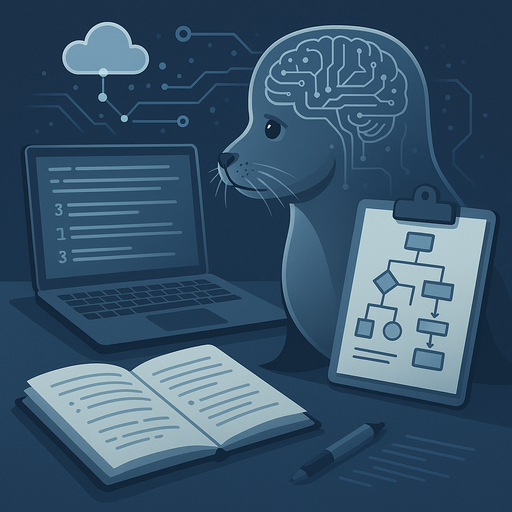Researchers from the Massachusetts Institute of Technology have unveiled a breakthrough artificial intelligence system called SEAL, capable of autonomously improving its algorithms by generating training data.

G. Ostrov
A team of scientists from the Massachusetts Institute of Technology has achieved a significant breakthrough in machine learning by creating the SEAL system (Self-Adapting Language Models) — an artificial intelligence capable of independently generating data for its own learning and improvement.
SEAL Technology Principles
The core concept of SEAL lies in moving away from the traditional approach of training on raw textual data. Instead, the system gains the ability to independently process and structure information for more effective learning. The developers draw an analogy with student learning processes: rather than mechanically memorizing lecture material, it's more effective to create structured notes, visual diagrams, and personal commentary.
System Operation Mechanism
The SEAL self-learning process consists of three key stages:
First stage: The system analyzes new context and creates "self-corrections" — structured versions of original data with selected settings and instructions for further training.
Second stage: Based on the created instructions, the model undergoes additional training and testing. If self-corrections lead to improved results, they are integrated into subsequent cycles for generating new instructions.
Third stage: Through an iterative trial-and-error process, the system not only increases its efficiency but also improves self-enhancement mechanisms.
Practical Testing Results
The technology's effectiveness was demonstrated on tasks requiring abstract thinking. The base model Llama-3.2-1B, initially unable to solve any test tasks, achieved 72.5% success in tests after applying the SEAL methodology.
Significance for AI's Future
The value of such technologies extends beyond simply increasing artificial intelligence computational power. Particularly important is the more rational use of training data, which is becoming an increasingly scarce resource. According to Epoch AI analysts' forecasts, between 2026 and 2032, humanity may face data depletion for neural network training. SEAL-type systems represent one potential solution to this critical problem.
Official MIT website: https://www.mit.edu
In case of any problems, contact us, we'll help quickly and efficiently!




